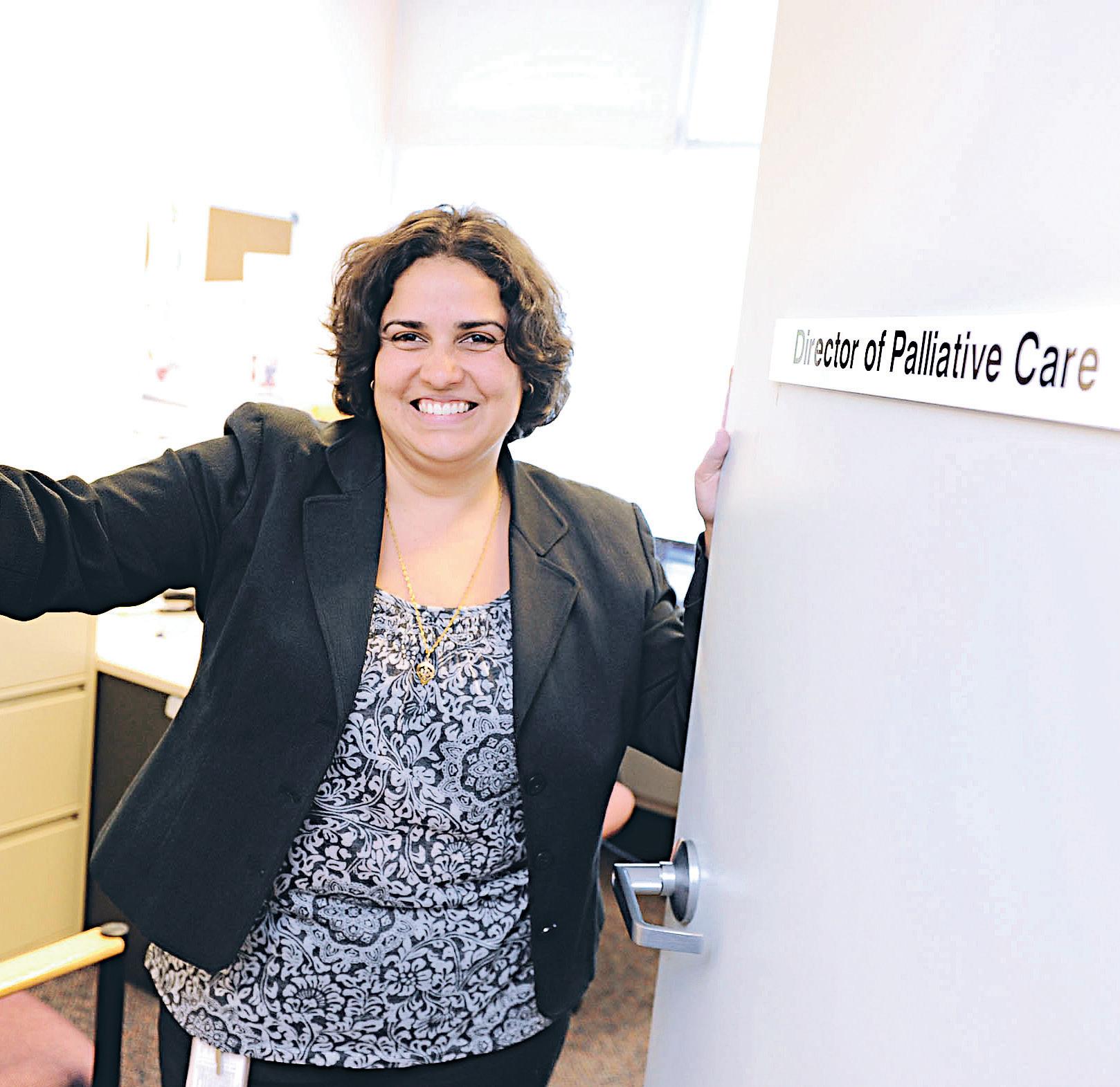
4 minute read
A comforting reward
from 2011-08 Melbourne
by Indian Link
Palliative care finally gets recognition it deserves, through the efforts of a dedicated medico and her team
BY USHA RAMANUJAM ARVIND
As a student of medicine at Adelaide University in the late nineties, Meera Agar was instinctively drawn to the relatively low profile realm of palliative care. According to World Health Organisation (WHO), palliative care is “an approach that improves the quality of life for both, patients with life-threatening illnesses and their families, through the prevention and relieving of suffering by means of early identification, impeccable assessment and treatment of pain as well other problems, physical, psychosocial and spiritual”.

Besides being deeply satisfying, its “holistic nature, and treatment of patients as individual people, rather than as a case or disease” was what attracted the impressionable young medico.
A career decision
Dr Agar went on to specialise in the area, obtaining her Masters in Palliative Medicine from Flinders. Her doctoral research, which followed, was on delirium in advanced cancer patients. Since then Dr Agar has been extensively involved in various research projects across Australia, focussing on symptom management, health service intervention, delirium and dementia.
Steadfastly pursuing her passion, the clinical physician has certainly come a long way in spearheading vital clinical trials to alleviate pain and suffering in an area that she candidly admits, has previously been ignored and grossly underfunded.
A deserved reward
Currently the Palliative Care Director of Hammond Care’s Braeside Hospital, Dr Agar was recently honoured with the NSW Premier’s Award for Innovation in Cancer Clinical Trials. The award, which includes a grant of $20,000, recognises the achievements of Dr Agar and her staff.
Catering to all ages, the facility located in southwest Sydney offers specialist rehabilitation and residential care for people with advanced incurable diseases as well as a support system for their families. As part of the public health system, Dr Agar’s unit is primarily funded by competitive research grants from the Commonwealth Department of Health and Ageing, National Health and Medical Research Council (NHMRC) and Cancer Institute NSW, as well as benevolent contributions. Dr Agar’s research has so far received close to $5million in funding.
Besides being deeply satisfying, its “holistic nature, and treatment of patients as individual people, rather than as a case or disease” was what attracted the impressionable young medico
About the facility
While end stage cancer is its speciality, the centre also provides care for other advanced conditions like heart, lung and kidney failure, neurological disorders and dementia.
“Our unit has been recognised for having a broad range of studies (15 clinical trials) in the area of palliative care, and also a large number of participants (150 in 2010) actively participating in the clinical trial programme,” Dr Agar told Indian Link.
“I am particularly grateful to our nurses Jane Hunt, Nichole Petrie, Julie Wilcock and Aileen Collier, who have been responsible for the ongoing and individualised care of our participants while they are involved in a study. Without their commitment and dedication, this achievement would not have been possible,” said Dr Agar in acknowledgement of her staff.
“The recognition and funding will now allow us to make more clinical trials available to our patients, including access to new medication. As well, we can now increase participant numbers by having more research staff on board,” she added.
Progressive explorations
“Clinical trials,” she emphasised, “are crucial to palliative care, as they not only help us determine and minimise side effects but also identify treatments that could be licensed and eventually subsidised.”
The trials specifically focus on cancer symptoms such as bowel obstruction, loss of appetite, delirium, confusion, fatigue, a dehydrated mouth, along with pain alleviation and suffering reduction.
“For example, we are exploring medications that improve appetite, decrease nausea, pain, breathlessness and fatigue,” explained Dr Agar. “We are exploring the best model to provide more intensive, community-based care to see if this will allow people to remain in their own home for as long as possible, and die at home if this is their wish.”
Another study, Dr Agar continued, has explored the role of family conferences in planning care for those with advanced dementia.
Delirium, an acute confusional state that occurs when someone is unwell, has also been a focal point of the study. “This is highly distressing to both the patient and family, and we are exploring the best treatment to improve this condition,” she stated. “We are still in the process of completing many of these studies and hope results will be available to directly improve patient care in the next 12 months.”
An unsure healthcare system
For Dr Agar, who is a fellow of both Royal Australasian College of Physicians and Australasian chapter of Palliative
Medicine, the most frustrating aspect while dealing with her patients is to hear stories of how the healthcare system and the community has failed them – for example being left in pain, or not having access to enough nursing care to keep them at home. “As a community we have a lot to learn from their experiences, and all of us need to take responsibility for advocating for the needs of the most vulnerable,” she emphasised.
“Clinical trials are crucial to palliative care, as they not only help us determine and minimise side effects but also identify treatments that could be licensed and eventually subsidised”
“Often clinicians believe that trials among advanced sufferers are not productive. This is not the case. These patients have so much to offer. Besides showing enormous fortitude, they have numerous life experiences to share,” said Dr Agar vehemently.
The resilience and courage displayed by the patients have touched her deeply. “Both patients and carers grapple with many issues. These may be physical symptoms, providing for physical care needs, the emotional and psychological roller coaster, financial issues, practical issues, existential and spiritual questions, and providing support for children,” she said. “But overall the human spirit is resilient, and people facing an advanced illness have enormous dignity and courage which is truly inspiring,” added Dr Agar.
“It is extremely humbling for me to be part of this personal journey with them, through the good times and the bad,” she said in conclusion. “The funding boost will certainly provide new avenues in palliative care.”











